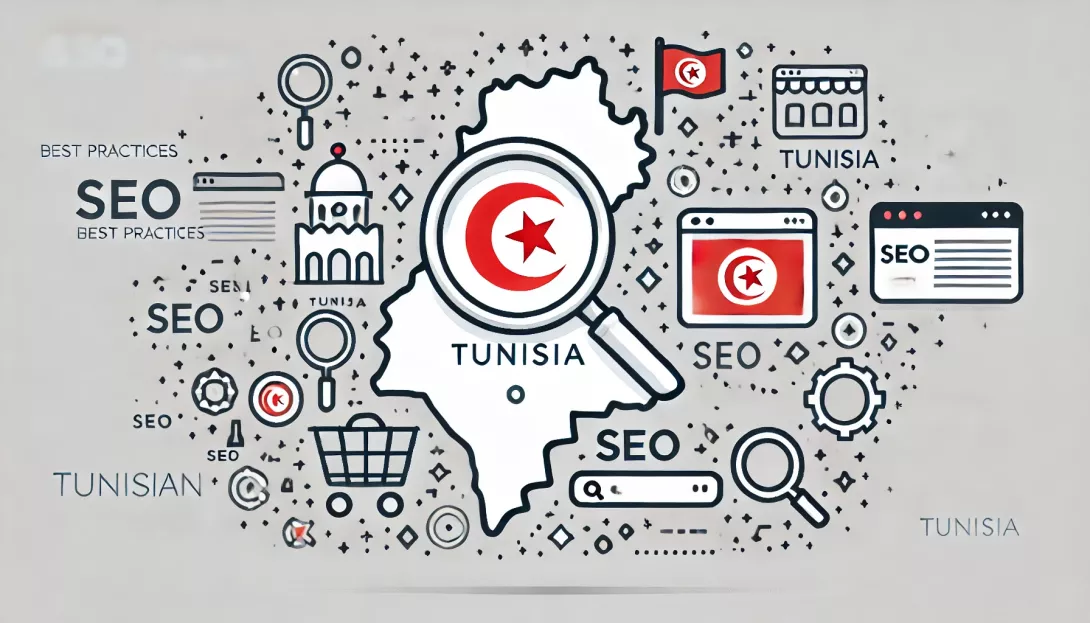
SEO Best Practices for Tunisian E-commerce Sites
As the e-commerce sector in Tunisia continues to flourish, optimizing your online store for search engines has never been more critical. Implementing effective SEO strategies can significantly enhance your website's visibility, attract more customers, and boost sales. At Antares Infogérance, we understand the intricacies of SEO and its importance for e-commerce businesses. Here are some best practices to help Tunisian e-commerce sites achieve optimal search engine rankings.
1. Keyword Research
Start with comprehensive keyword research to identify terms and phrases your potential customers are searching for. Utilize tools like Google Keyword Planner, Ahrefs, or SEMrush to discover relevant keywords with high search volume and low competition. Focus on long-tail keywords, which are more specific and likely to attract targeted traffic.
2. Optimized Product Descriptions
Ensure that each product description is unique, informative, and optimized with relevant keywords. Avoid duplicate content, as it can negatively impact your search engine rankings. Highlight key features, benefits, and specifications of the products to provide valuable information to potential buyers.
3. High-Quality Images and Alt Text
High-quality images enhance the user experience and can improve your site's SEO. Use descriptive file names and include alt text for each image, incorporating relevant keywords. This helps search engines understand the content of the images and improves accessibility for visually impaired users.
4. Mobile Optimization
With a significant number of users accessing e-commerce sites via mobile devices, ensuring your website is mobile-friendly is crucial. Use responsive design to provide an optimal viewing experience across all devices. Google prioritizes mobile-friendly sites in its rankings, making this a vital aspect of your SEO strategy.
5. Fast Loading Speeds
Page speed is a critical factor for both user experience and SEO. A slow-loading site can lead to higher bounce rates and lower search engine rankings. Optimize your website's loading speed by compressing images, leveraging browser caching, and minimizing JavaScript and CSS files.
6. Secure Website (HTTPS)
Security is a priority for both search engines and users. Ensure your e-commerce site uses HTTPS encryption to protect customer data and build trust. Google also favors secure sites, giving them a ranking boost.
7. User-Friendly URL Structure
Create clean, descriptive, and keyword-rich URLs for your product pages. Avoid using long strings of numbers and characters. A clear URL structure helps search engines understand your site's content and improves user navigation.
8. Quality Backlinks
Building high-quality backlinks from reputable websites is essential for improving your site's authority and search engine rankings. Focus on creating valuable content that others will want to link to, such as blog posts, infographics, and guides. Reach out to industry influencers and websites for potential backlink opportunities.
9. Regular Content Updates
Keeping your website's content fresh and up-to-date signals to search engines that your site is active and relevant. Regularly update product listings, add new blog posts, and refresh existing content to maintain engagement and improve SEO.
10. Local SEO
For Tunisian e-commerce sites, local SEO is particularly important. Optimize your site for local search by including location-specific keywords, creating a Google My Business profile, and encouraging customer reviews. This helps attract local customers and improves your visibility in local search results.
By implementing these SEO best practices, Tunisian e-commerce sites can enhance their online presence, attract more targeted traffic, and ultimately drive sales. At Antares Infogérance, we specialize in helping businesses optimize their digital strategies to achieve success. Visit our website at https://www.antares.tn to learn more about our services and how we can support your e-commerce growth.